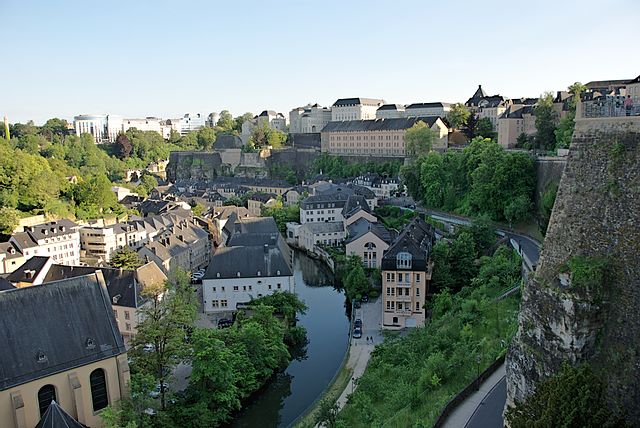Family. Society finds its raison d'être in the family. Faced with the loss of loved ones and the problems caused by confinement, the family has once again become a community of life. community of life. It is interesting to note how, during the pandemic, the family has managed to bring all its members together, to unite family has managed to unite all its members, protecting and helping them to overcome this crisis. and helping them to overcome this crisis. For example, many sick people, abandoned for fear of contagion, recognize the value of their families. the fear of contagion, recognize the courage of the family in facing the disease.
To be a family has been to practice compassion, consolation and mutual comfort and mutual help. Its members have listened and welcomed. And these attitudes have also been exercised outside of the family environment, thanks to the fact that they have been been rehearsed in the family. The family has functioned as an excellent school for the practice of these attitudes. What would have happened without the family? I believe I think that there would have been much less social peace.
Freedom. Some European European states have given a wide margin of freedom so that the citizen could make many health recommendations his own, without the government many of the health recommendations, without the government having to impose them. government having to impose them. In other words, by appealing to common sense. This formula, in Luxembourg, the country where I live, has produced excellent results.
Here the margin of freedom enjoyed by citizens has been significant. citizens has been significant. This ingredient of freedom in Luxembourg politics explains the country's success over the decades. Luxembourg policy explains the country's success over decades. Maximum respect for the citizen! citizen! The Luxembourger is particularly aware of his identity and his independence, even from his own state. independence, even vis-à-vis their own state. The latter naturally assumes that the citizen cannot be that the citizen cannot be overburdened with regulations that are sometimes contradictory or impossible to implement. regulations, which are sometimes contradictory or impossible to implement as quickly as necessary, and therefore leaves the and therefore leaves him free to act.
Spirituality. In times of severe restrictions on religious religious celebrations, the relationship with God is direct. Man was created in the image and likeness of God (cf. Gen 1:27), and therefore participates in divine attributes, such as intelligence and will, which allow him to transcend himself. attributes, such as intelligence and will, which enable him to transcend himself, and connects him with immaterial aspects of his existence. Spirituality is part of this immateriality. Being contrary to matter, it is opposed to destruction, opposed to death, opposed to death, opposed to death. destruction, it is opposed to death, it means life, strength and recovery, balance and emotional well-being.
The Bible refers to the Holy Spirit as the breath of life. life. It is the "wind of God. And the wind, as pure air, has never been more necessary than now, when all of us, in order to stay alive, need to breathe a breath of life. more necessary than now, when all of us, in order to stay alive, need to breathe less polluted air. Whoever does not breathe is dead! And whoever breathes the "wind of God" is freed from the suffering and anguish caused by illness.
Solidarity. Another "legacy" of this pandemic is the growing social awareness that has triggered the crisis. The disease equals! Some countries in Europe have per capita incomes that are among the highest in the world, but they are worried about the social gap that the epidemic is the social gap that the epidemic is causing.
It should be remembered that a health crisis of this magnitude is also a financial crisis is also a financial crisis, triggering an almost automatic transfer of resources from more vulnerable countries to richer ones. of resources, almost automatically, from more vulnerable countries to richer ones, exponentially increasing the effects of the crisis. Sometimes, the Sometimes, the politicians of the most vulnerable countries, with unwise decisions, contribute to increase this transfer of funds contribute to increasing this transfer of funds, feeding back and amplifying the effects of the crisis. and amplifying the effects of the crisis. It is like a vicious circle, in which bad practices are repeated bad practices are repeated and we never get out of the crisis.
Let us not forget that countries such as Germany or Luxembourg pay less for their debts than before the crisis. The interest rate on their public public debt is now negative. This makes them money, because everyone who buys their debt has to pay for it. who buys their debt has to pay for it. This is an important financial advantage Prime Minister of Luxembourg has referred to this important financial advantage to justify his country's willingness to give more help to those countries, like to help more those countries which, like Spain, lack these privileged conditions. privileged conditions.
The Church has set itself the goal of recovering from the pandemic, without forgetting the weakest. the weakest, is the objective that the Church has set itself. This is what the Council of European Bishops' Conferences (CCEE) the Council of the Bishops' Conferences of Europe (CCEE) at its annual meeting on 3-6 June last last 3-6 June under the motto A fair recovery that leaves no one behind.
As a conclusion, a society that recognizes the value of the family, freer, more responsible, less materialistic and family, freer, more responsible, less materialistic and more supportive, will be the society of the future. solidarity, will be the society of the future.











